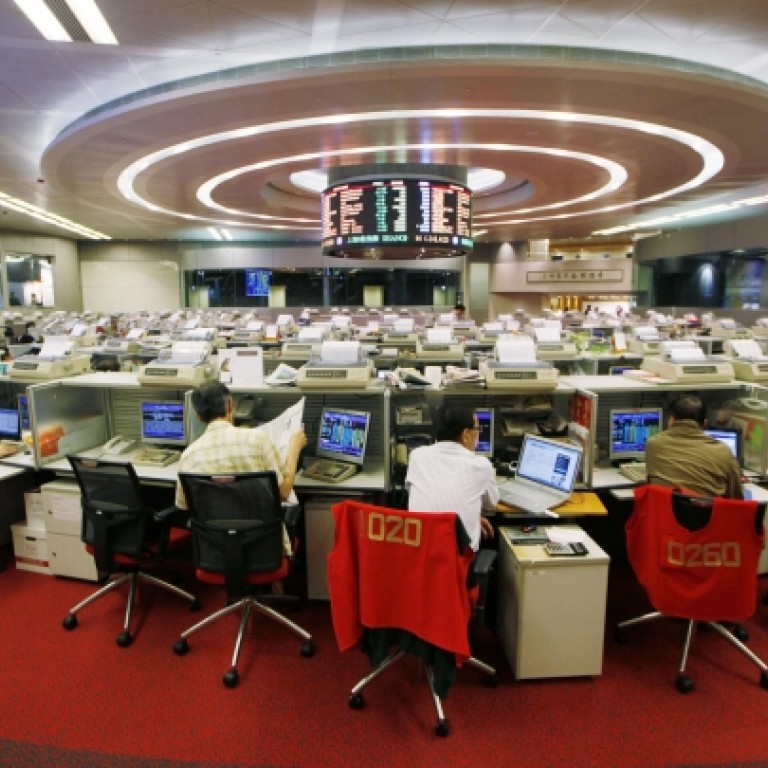
Analysts shrug off sell-off in H shares
Record losing run tests investors' patience but experts say exposure to the mainland economy still offers value for those with a longer view
H shares have been performing badly in recent weeks, hurting pension funds and other investors, but brokers and fund managers say they will bounce back soon.
However, not many champagne corks are expected to be popped when the 20th anniversary of the first H-share listing in the city is celebrated next Monday.

The H-share index, which tracks the mainland enterprises listed in Hong Kong, fell below the psychologically important 10,000-point level last month for the first time since October last year, with the slide led by financial and property firms. It dropped to as low as 8,640.85 points before bouncing back to close at 9,209.34 on Friday.
Investors are selling mainland lenders on concerns that interest rate liberalisation and tighter controls over wealth management products will hurt their profits. Property firms are also being sold off because investors are worried about curbs on the mainland property market.
With H shares falling, many Hong Kong investors have had their fingers burned. And that includes many mandatory provident funds, with China equity funds the worst performers in the first half of this year with an average loss of 12.58 per cent. This is worse than the 8 per cent decline in the Hang Seng Index in the same period and the 0.56 per cent fall for all MPF funds.
Mark Konyn, the chief executive of Cathay Conning Asset Management, said China-related stocks were typically well represented in an MPF account due to relatively high allocations to the Hong Kong stock market, which meant that many of the 2.4 million employees covered by the MPF would be hurt by the falling value of H shares.
"MPF investors have faced a difficult period for investing this year," Konyn said. "China stocks have been heavily out of favour since the early part of the year as the economy has slowed and the new leadership has shifted emphasis away from double-digit GDP growth and more towards the quality of economic progress.
"This has disappointed investors and stocks have not performed well and maintained the momentum built at the end of last year."
King Au King-lun, the chief executive of BOCHK Asset Management, said H shares had been oversold and he expected they would bounce back. "I think this is a good time to buy into H shares as many of them are very reasonably priced now," he said.
Au said that despite the economic slowdown forecast on the mainland, China would still be growing faster than many Western economies.
"As an example, China is now the world's largest car market but with a car ownership rate of just 6 per cent, or six cars per 100 people. This compares with 90 per cent for the car ownership rate in the US. That means the car industry has huge growth potential," Au said.
"A similar situation could happen to other industries in retail and many consumer products. The long-term prospects for the H shares and mainland stocks are very attractive."
Joseph Tong Tang, an executive director of Sun Hung Kai Financial, said H shares had endured a lot of ups and downs over the past two decades and he believed the current "low time" would not last beyond the medium term.
"Investing in H shares is the same as investing in China's economic outlook," Tong said. "Whenever the Chinese economic outlook is positive and the policies benefit certain sectors, the related H shares go up, and vice versa. The recent figures released by China are not good, which is why the H shares are getting selling pressure.
"But after some consolidation, the buying interest will come back to H shares."

